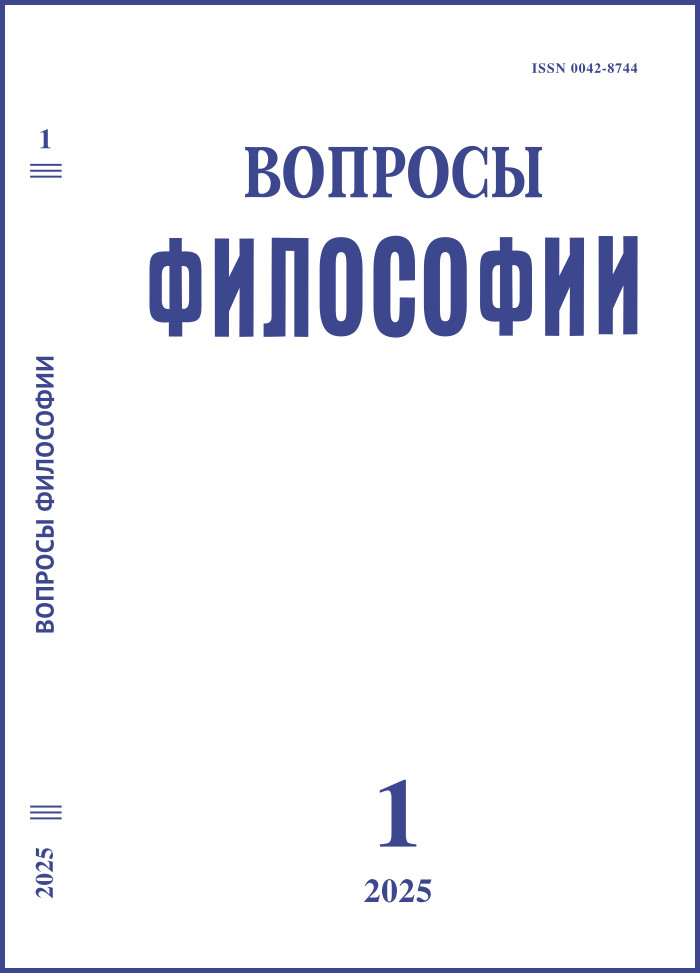Epistemological Aspects of Atomism
DOI:
https://doi.org/10.21146/0042-8744-2025-1-106-116Keywords:
Atomism, discrete, continuous, formal language, G. Grassman, R. Dedekind, foundations of mathematics, geometry, arithmetic, continuous function, real numbers, structural properties, extra-linguistic entities, PlatonismAbstract
The article is devoted to the problem of cognition of discreteness and continuity from the point of view of the philosophy of mathematics. The purpose of this study is to substantiate the priority of discrete systems in the cognitive process. These categories have mathematical meaning, so solving the problem of continuity in different mathematical theories is a paradigm for solving the more general epistemological problem of comprehending continuity using discontinuous tools. Mathematics is the first to make the continuous cognizable through such discrete instruments as the symbols of language. The construction of continuous entities from atomic elements is justified as a general cognitive device. Special attention is paid to the representation of geometric objects in arithmetic terms. It has been established that atomicity and continuity are originally properties of numbers and sets, and not of the physical phenomena to which they are applied. Empirical phenomena obtain these characteristics by representing them in mathematical language. The result of the analysis of the problem of discrete and continuous changes the established views on the crisis of mathematical foundation programs. Our cognitive habits of extrapolating discrete structure research methods to continuous ones and distrust of formal language force us to seek direct access to mathematical objects outside of language. It is shown that this is not a crisis of the philosophy of mathematics, but a crisis of metaphysics.

